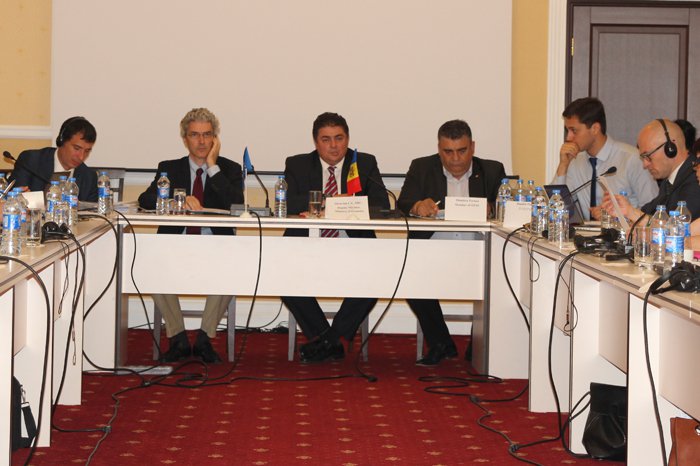European officials, Moldovan civil society review Free Trade Agreement's impact on trade, sustainable development
17:16 | 08.07.2015 Category: Economic
Chisinau, 8 July /MOLDPRES/ - Civil society representatives, senior European and Moldovan officials participated in the first European Union - Moldova joint forum for dialogue with the civil society, focused on trade and sustainable development, in the context of the implementation of the EU-Moldova Deep and Comprehensive Free Trade Agreement (DCFTA) in Chisinau today.
The event aimed to identify common solutions on the proper implementation of the DCFTA provisions on trade and sustainable development, so as to have a positive impact both on business area, and the environment, labour market, etc.
Attending the forum, Deputy Economics Minister Octavian Calmic stressed the importance of a constructive dialogue with the civil society. "The Economics Ministry relies on effective communication with the civil society, to identify how the Moldova - EU Free Trade Agreement can bring added value and benefits in the economic, social, environmental and other sectors," said Calmic.
Civil society representatives from the EU and Moldova, who attended the forum, set up two internal consultative groups. They noted the importance of the Forum for civil society's involvement, in order to deeply tackle challenges in the implementation of the Association Agreement. The two advisory groups also signed a declaration on a set of necessary policy recommendations, aimed at enhancing the competitiveness of local products, improving the business environment, social protection of employees, removing of non-tariff trade barriers, improving the education system, environmental protection, speeding up reforms, etc.
The dialogue forum will be held annually. The event will be organized in the European Union in July 2016, and will be preceded, same as this year, by ta meeting of the Moldova - European Union Trade and Sustainable Development Sub-Committee.
At the same time, experts from the competent ministries, European institutions and civil society representatives, during the year, will assembly at topic-related workshops to identify priority policies that will contribute to a successful enforcement of the provisions of the Association Agreement.
(Reporter A. Mardare, Editor M. Jantovan)

